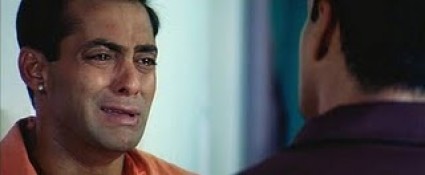This is the 29th installment of Viewfinder, my weekly column for Yahoo! India, and was published on November 18.
The world is so insane that it is a wonder satirists have a job. I read recently in Hindustan Times—yes, HT, not an Indian version of The Onion—that the makers of Golmaal 3 have been sued by The Indian Stammering Association “for mocking people who stammer.” Shreyas Talpade stammers in the film, and the other characters reportedly keep making fun of him. (I haven’t seen the film.) So this organisation of stammerers is upset about it, and they’re going to court. So far, an association of mute people hasn’t surfaced to join in the revelry—Tusshar Kapoor plays a mute character in the film, and ends up landing the heroine, which does not surprise me: which woman can resist a man who just shuts up and listens?
Seriously, are we a society of eight-year-olds? Even if the explicit intent of the film was to make fun of people who stammer—and it obviously wasn’t—so what? Such mockery always reflects badly on those doing the mocking, not on those being mocked. Why be so sensitive to criticism and mockery (or even abuse)? How insecure do we have to be to let mere words affect us so much?
A few months ago, a salesman from an finance company called me a couple of times to try and sell me an insurance package. I was irritable that day, and the second time I said something to the effect of “… and don’t f***in’ call me again!” before hanging up. 30 seconds later, the phone rings. It’s the same guy, demanding to know “Why you call me f***er? WHY YOU USE BAD LANGUAGE?” I lost it this time, and unleashed a string of pejoratives at the fellow. I hung up again, he called me again. Though I did not answer any more of his calls, he called me about 35 times in the next two days, and his number is still saved in my mobile phonebook as ‘Birla Sunlife Troll.’
Why did it matter so much to him that a random stranger called him X and Y? He screwed up his peace of mind, agitated over it for a couple of days, and it is likely that it affected his interactions with other people around him as well, besides endangering his job. It was irrational—but we are an emotional species more than a rational one, so it is understandable that one gets upset about it, even though being called a ‘bastard’ or a ‘bhainchod’ does not literally make one a bastard or a bhainchod—and hell, we don’t even know what ‘chootiya’ means. But while being upset at abuse or mockery is understandable, what is bizarre is that we expect the legal system, like a school teacher in a yard full of unruly schoolkids, to take over and punish the bad boys. What is even more bizarre is that our legal system actually has provisions for this.
I’ve written before about how certain provisions of the Indian Penal Code make it a crime to give offence in certain contexts, and how the Indian constitution does not provide adequate protection to free speech. All that is a shame, and an example of what’s wrong with our legal system. But there is also something wrong with us, that so many of us take offence so easily at something we could so easily ignore. It speaks of low self-esteem and diffidence, the very qualities that a stammering association should be trying to eradicate in its members. That makes this court case especially ironical, doesn’t it?
* * * *
My respect always goes up for people who show they can laugh at themselves. The sardar who tells sardar jokes, the fat guy who jokes about his paunch, the poker player who mocks his own poor plays, these are my kind of people. They are comfortable in their own skins, and they get that we are a bumbling, imperfect species doomed, biologically, to self-destruct—so some things are just not worth getting het up about. The biggest human failing is that we take ourselves too damn seriously. When we do that, the universe laughs at us.
